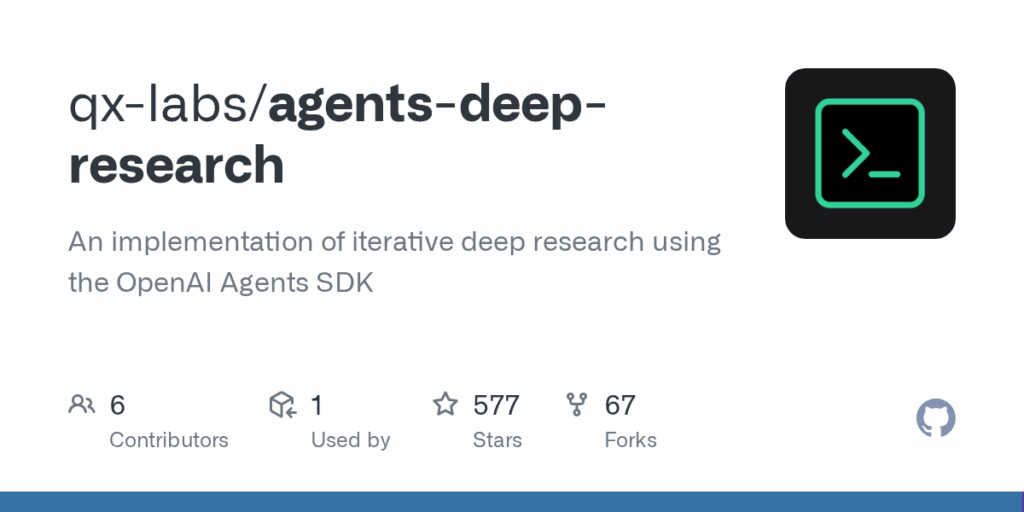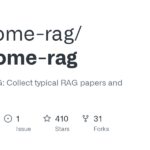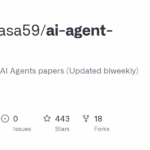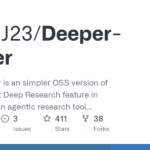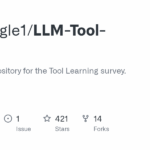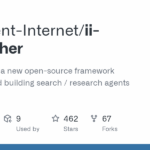agents deep research
Basic Information
This repository implements an agentic deep research assistant built on the OpenAI Agents SDK. It provides two complementary modes: IterativeResearcher for continuous looped research on a single topic and DeepResearcher for creating structured, multi-section reports by running parallel IterativeResearcher instances for each section. The package uses a multi-agent architecture with components such as a Knowledge Gap Agent, a Tool Selector, specialized Tool Agents (web search and website crawler by default) and a Writer Agent to synthesize findings into a final report. It is intended to be used as a Python module or via a command line interface and is designed to be extended with custom tools and agents. The system supports multiple model providers that follow the OpenAI API spec and includes optional trace monitoring of agent interactions.

